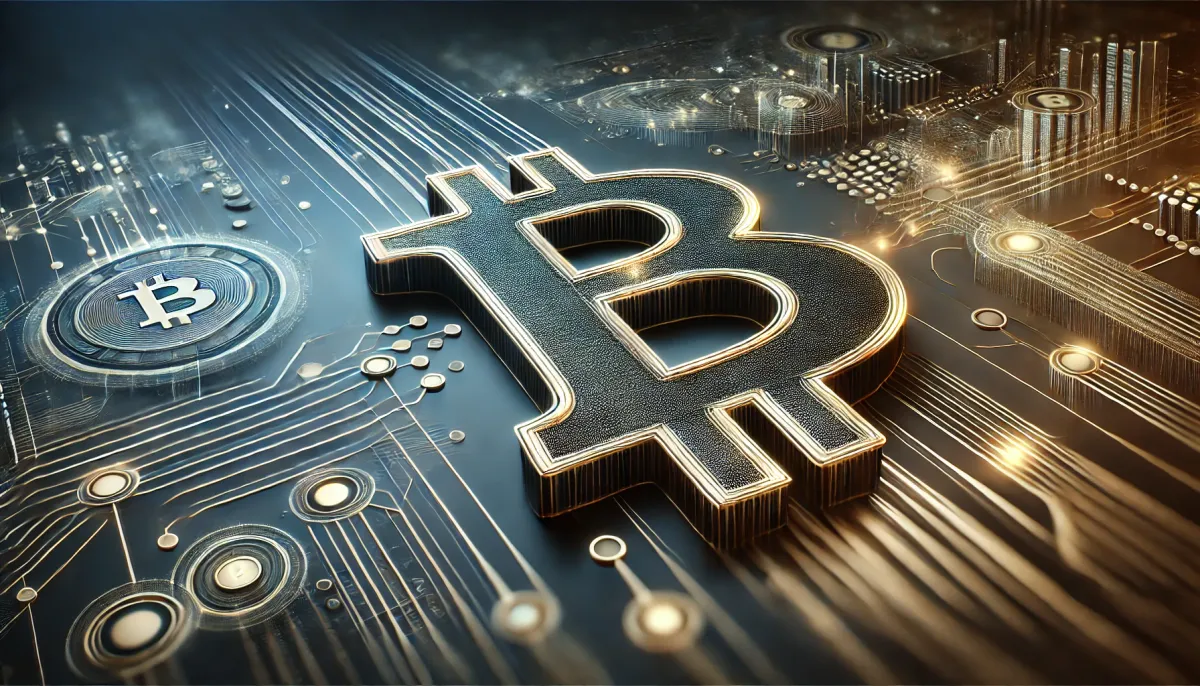Bitcoin Sovereignty, ETFs, and Network Resilience
The September 04, 2025 episode of The Bitcoin Edge with Paula features Daniel White explaining how Bitcoin creates an unbreakable rule in global competition by preventing seizure through force.

- My 'briefing notes' summarize the content of podcast episodes; they do not reflect my own views.
- They contain (1) a summary of podcast content, (2) potential information gaps, and (3) some speculative views on wider Bitcoin implications.
- Pay attention to broadcast dates (I often summarize older episodes)
- Some episodes I summarize may be sponsored: don't trust, verify, if the information you are looking for is to be used for decision-making.
Summary
The September 04, 2025 episode of The Bitcoin Edge with Paula features Daniel White explaining how Bitcoin creates an unbreakable rule in global competition by preventing seizure through force. He warns that ETF-based custodial products centralize control and recreate fragile paper claims, undermining decentralization. White emphasizes that self-custody, corporate treasury adoption, and broader node participation are essential to securing Bitcoin’s long-term resilience.
Take-Home Messages
- ETF Consolidation Risk: Custodial ETFs concentrate Bitcoin behind paper claims, weakening decentralization and creating fragility.
- Self-Custody Imperative: Cold storage and user education preserve sovereignty and reduce irreversible loss risks.
- Settlement as Driver: Institutional settlement flows will shape fee markets and security budgets more than everyday retail payments.
- Corporate Incentives: Bitcoin treasuries can shift firms away from short-term engineering toward durable goods and workforce stability.
- Node Participation: Expanding node counts strengthens governance, resilience, and individual agency in the network.
Overview
Daniel White argues that Bitcoin is unique because it introduces a rule into global competition that cannot be broken: when properly secured, it cannot be seized by force. He explains that this feature reshapes how states and corporations pursue resources, since coercion gives way to voluntary trade. By reframing ownership as self-sovereignty, Bitcoin challenges the long-standing reliance on sovereign enforcement of property rights.
He highlights the risks created by ETFs and custodial products, which can centralize control of Bitcoin and issue paper claims to investors. In his view, such structures risk repeating fiat-style fragility by enabling liquidations and leverage that transfer Bitcoin from retail to institutional players. To counter this, he urges users to adopt self-custody, starting with small test transactions to build competence without risking their entire holdings.
At the corporate level, White argues that adopting a Bitcoin treasury enables firms to escape the constant pressure of fiat debasement. He suggests that companies with Bitcoin reserves can shift resources away from financial engineering and toward product quality, workforce stability, and long-term planning. This change, he claims, can strengthen resilience while improving consumer outcomes by encouraging durable and affordable products.
He also contends that network resilience depends less on everyday payments than on settlement flows between major institutions. While small-scale retail transactions have value, White predicts that high-value settlements will drive fee markets and sustain the security budget. He concludes that expanding the number of reachable nodes is vital, ensuring that users actively contribute to network validation rather than remaining passive observers.
Stakeholder Perspectives
- Retail holders: Concerned about balancing usability with security in self-custody practices.
- Institutional asset managers: Interested in scalable ETF structures but face risks of centralization and redemption shortfalls.
- Custodians and exchanges: Must manage compliance and liquidity while avoiding leverage-driven fragility.
- Regulators and policymakers: Need to weigh consumer access against systemic risk posed by concentrated custodial holdings.
- Corporate treasurers: Evaluate whether Bitcoin reserves improve capital allocation and long-term business stability.
- Wallet and node developers: Focus on usability improvements to lower barriers for self-custody and node participation.
- Risk officers: Develop controls to manage custody failures, key management errors, and drawdown scenarios.
- Educators and advocates: Translate security practices into accessible tools and training for broad adoption.
Implications and Future Outlook
The consolidation of Bitcoin behind ETF custodians poses systemic threats that could undermine its decentralized foundation. If redemptions are delayed or denied during stress events, the result may resemble fiat-era fragility where retail investors lose sovereignty to institutional control. Expanding self-custody through more intuitive tools and stronger education is the counterbalance, ensuring that sovereignty remains broadly distributed.
Corporate treasuries adopting Bitcoin signal more than a balance-sheet strategy; they also reshape business models and planning cycles. By holding Bitcoin as a reserve, companies can reduce reliance on cost-cutting and financial engineering to survive monetary debasement. This reorientation favors longer-term investments in quality and labor, potentially making firms more resilient and consumers better served.
Network resilience depends on expanding node participation while institutional settlement grows as the main driver of transaction fees. High-value flows between major financial players can sustain the security budget, but without a broad base of nodes, governance risks shifting toward centralization. Normalizing node operation as an accessible and expected practice is therefore critical to safeguarding Bitcoin’s long-term survival.
Some Key Information Gaps
- How can ETF-driven Bitcoin consolidation affect sovereignty and decentralization? Understanding centralization risks has direct implications for regulators and long-term market design.
- What are effective methods to make self-custody safer and more accessible for average users? Practical custody tools and education are essential to scale sovereignty without raising systemic fragility.
- How does an unbreakable rule in resource capture reshape geopolitical strategies? Bitcoin alters how states and corporations compete, with consequences for security and economic policy.
- What measurable changes occur in firms that shift treasury reserves into Bitcoin? Evaluating firm-level outcomes clarifies whether adoption delivers stability and long-term incentives.
- What threshold of node participation ensures Bitcoin’s long-term resilience? Identifying resilience thresholds informs technical development and campaigns to expand node operation.
Broader Implications for Bitcoin
Global Reserve Competition
As Bitcoin becomes more widely held by institutions and treasuries, it may compete directly with sovereign reserve assets like gold or U.S. Treasuries. This competition could alter the foundation of international monetary order, pressuring central banks to diversify or integrate Bitcoin into their reserve strategies. The outcome will shape how countries manage capital flows, sanctions, and exchange rate stability over the next decade.
Financial Market Architecture
Large-scale ETF adoption raises the possibility of Bitcoin being integrated into mainstream financial plumbing, such as derivatives, repo markets, and collateral frameworks. If this occurs, Bitcoin could become a systemic settlement layer underpinning credit and liquidity management across global markets. The risk is that such integration could replicate fiat fragilities at scale while also increasing Bitcoin’s systemic relevance.
Industrial and Labor Dynamics
A shift to Bitcoin treasuries could reconfigure corporate incentives globally, not just in select firms. If widespread, industries may prioritize durability and wage stability, creating ripple effects across labor markets, consumer goods quality, and supply chain design. This transformation could recalibrate the relationship between workers, employers, and capital, with implications for industrial policy.
Security and Defense Policy
By introducing an asset that cannot be seized by force, Bitcoin alters long-term defense and security doctrines. States may need to reconsider traditional approaches to sanctions, resource capture, and wartime finance, as the leverage of physical control weakens in a Bitcoin-denominated world. Over time, this could shift the balance of power toward nations with strong technological infrastructure and custodial expertise rather than purely military strength.



Comments ()